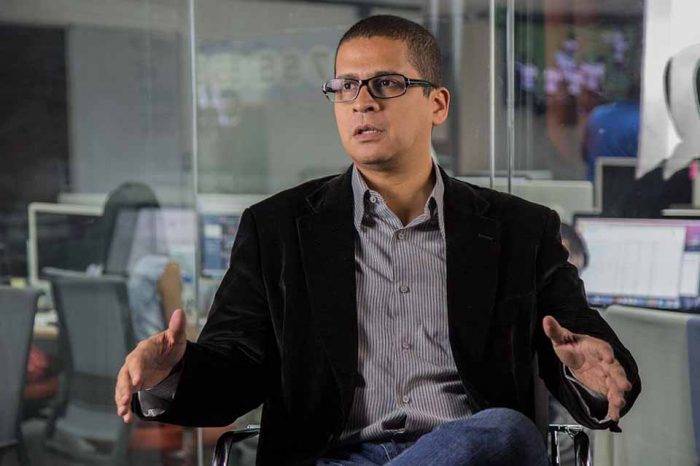The Maduro government seeks at all costs to bring the mandate of the Fact-Finding Mission on Venezuela to an end in October 2022, when a new resolution is expected to be voted upon at the UN Human Rights Council. To this end, the government is advancing actions that are openly contrary to the duties of Venezuela as a member of the Council, by promoting the elimination of mechanisms similar to the Mission and leaving millions without international protection and in the hands of armed groups and perpetrator governments
On the last day of sessions at the Human Rights Council on October 11, Mr. Félix Plasencia, Minister of Foreign Affairs of the de facto Maduro government, announced on Twitter that they were joining the “International Day of the Girl Child to empower all girls in the world and guarantee their human rights”. Four days earlier, on October 7, that same government voted against a Council resolution that established a special rapporteur to monitor the situation of human rights in Afghanistan, whose population is subject to the Taliban regime. The serious situation of girls in that country is no secret. According to Amnesty International in 2020, “women and girls continued to suffer gender-based discrimination and violence across Afghanistan, especially in areas controlled by the Taliban, where their rights were violated with impunity and they were subjected to violent ‘punishments’ for transgressing the armed group’s interpretation of Islamic law”.
Even though the government did not succeed in blocking the resolution on Afghanistan, it did triumph in blocking the extension of the mandate of the Group of Eminent Experts on Yemen along with 20 other member States. In its 2020 report, that Group provided information on gender violence (para. 68 to 84), including sexual violence against girls, committed by State forces and armed groups, cases of forced nudity, and the recruitment of 34 girls aged 13 to 17.
The next day, October 8, the Maduro government unsuccessfully tried to block two more resolutions. The first on Burundi, approved by 21 votes, establishing a special rapporteur to monitor the human rights situation, aimed at strengthening the work of the UN Commission of Inquiry on Burundi. In its 2021 report (para. 47 and 48), the Commission reported that “Women and girls living in extreme poverty [in Burindi] run a greater risk of being exposed to sexual violence and often adopt harmful survival strategies, such as prostitution, which further heighten their risk of being subjected to sexual and gender-based violence”. The second resolution supporting the Commission of Inquiry on Syria and demanding the cooperation of the authorities was approved by 23 votes. In March 2021, the investigation mechanism reported that government forces and associated militias perpetrated rape and sexual abuse against girls, invasive searches, and gang rapes during operations against the opposition, and other serious acts of subjugation and discrimination against girls in areas controlled by the Islamic State (para. 48 to 53).
The actions in Geneva clearly contradict the words of the new Minister of Foreign Affairs of the de facto government and lack any coherence with the duties of Venezuela as a member of the Human Rights Council. Celebrating the International Day of the Girl Child is just part of a propaganda protocol prepared for Twitter. In the end, the government came to the Human Rights Council to avoid at all costs being examined about its duties and the duties of its agents, and it has not hesitated to join forces with governments that violate human rights and are investigated by mechanisms similar to the Fact-Finding Mission on Venezuela. The de facto government cares little about the fate of the Syrian, Burundian, Yemeni and Afghan people as long as it wins the sympathy of their rulers to achieve its goals at the UN.
The core objective of the Venezuelan de facto government for October 2022 is to reach a vote similar to the resolution on Yemen, end the mandate of the Fact-Finding Mission, close it, and prevent it from being converted into a more robust mechanism such as a Commission of Inquiry. That government is rushing to gather enough support for its cause. And this happens not only at the time of voting for a resolution but in all the debates on the situation of countries with investigation mechanisms created by the Council. This is why the de facto government came in support of the governments of Libya, South Sudan, Cambodia, and Belarus, all of them under investigation mechanisms or rapporteurships created by the Council. This support was generously rewarded by the last three governments when they made statements of support for the Maduro government during the debate on the latest report of the Fact-Finding Mission on Venezuela on September 24.
It is a concerted script in which these States return favors in the Council by providing support to mutually block the mechanisms. They all act in the same way, beginning by preventing the mechanism from entering the national territory and then by saying that the reports are not valid because they were not prepared on the ground. Later on, they affirm that the mechanisms were approved by vote, as if it were not provided for in the regulations, and without the consent of the States under investigation, as if those regimes that have so much to hide were willing to give the experts access to prisons and political prisoners, to the archives of the security forces, or mass graves. Then they pick principles from the United Nations Charter to build a discourse that limits human rights by resorting to the principle of sovereignty, independence, territorial integrity, and non-interference in internal affairs. Finally, they focus on the Council’s cooperation with the States as the only possible way for those governments with serious human rights situations to solve the problems in good faith.
But the alliances between these perpetrator governments would not have enough reach without the support of Russia and China, also current members of the Council. These two States gather the votes of the States under their influence in favor of the de facto Venezuelan government. Added to this is the influence of the government in blocs such as the Non-Aligned Movement and the “Group of Friends in Defense of the United Nations Charter”, recently created by Venezuela with absolute hegemony and made up of Algeria, Angola, Belarus, Bolivia, Cambodia, China, North Korea, Cuba, Equatorial Guinea, Eritrea, Iran, Laos, Nicaragua, Palestine, Russia, Saint Vincent and the Grenadines, Syria, and Zimbabwe.
The de facto government got a seat at the Human Rights Council for damage control at a time when human rights violations and international crimes committed in Venezuela are one of the most critical issues in its international relations. After leaving the inter-American system by denouncing the American Convention on Human Rights and withdrawing from the Organization of American States, the UN system and the International Criminal Court became the epicenter of the debate and hence the enormous deployment of resources of the government and the aforementioned alliances.
The round of voting expected for October 14 at the UN General Assembly to elect 18 new members of the 47-seat Council will have an impact on the October 2022 vote on the fate of the Mission. It will be up to the democratic states to counteract the intentions of the de facto government and its allies that seek to suppress this high-level investigation mechanism and similar mechanisms that investigate serious situations in the world. The legitimacy of the Human Rights Council as the highest human rights body of the United Nations is at stake, and it will have to prove whether or not it can withstand the onslaught of member States represented by perpetrator governments determined to cover each other’s back.
Translated by José Rafael Medina




